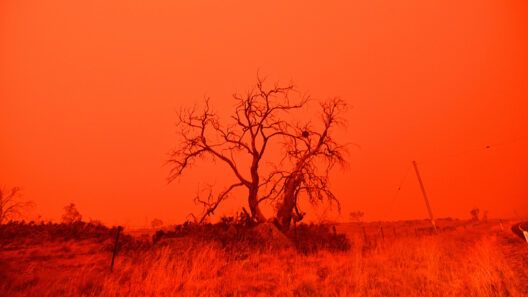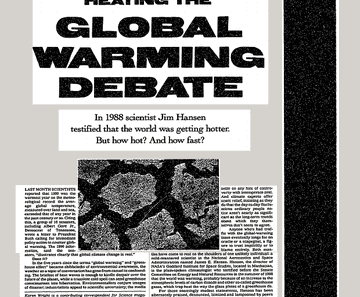Methane, an insidious gas that pervades our atmosphere, unfurls like a malevolent specter. It is often overshadowed by carbon dioxide in discussions surrounding global warming, yet its potential to wreak havoc is unparalleled. With a potency over twenty-five times more effective than carbon dioxide at trapping heat over a century, methane has emerged as a formidable player in the saga of climate change. In this discourse, we will unravel the complex tapestry of methane emissions, explore their implications on our planet, and delineate the urgent actions necessary to combat this climate adversary.
At the heart of the methane quandary lies its origin. This elusive gas is a natural and anthropogenic byproduct stemming from various sources. Naturally, methane is released through geological processes, marine environments, and the digestive systems of ruminating animals such as cattle. These bovine contributors are particularly noteworthy, playing an unwitting role in augmenting atmospheric methane levels. In fact, livestock agriculture stands as one of the most significant contributors to methane emissions. The intricate ballet of digestion in these animals produces vast amounts of methane, which escapes into the atmosphere, exacerbating our warming crisis.
Furthermore, the extraction and transportation of fossil fuels unveil another layer of methane’s malevolence. Natural gas, often heralded as a cleaner alternative to coal, is predominantly composed of methane. However, during its extraction and distribution, significant quantities of this gas are allowed to escape into the atmosphere. This leakage transforms the extraction process into a double-edged sword; while we may momentarily enjoy the benefits of a seemingly cleaner energy source, we are simultaneously exacerbating the global warming crisis. The irony is profound: in our quest for cleaner energy, we inadvertently stoke the fires of climate change.
As atmospheric methane levels rise, the consequences manifest in ominous ways. The heat-trapping ability of methane is not merely a scientific curiosity; it translates into tangible repercussions for our climate. Increased global temperatures accelerate the melting of polar ice caps and glaciers, causing sea levels to rise. Coastal communities face an existential threat, with projections indicating that entire cities could become submerged in the not-so-distant future. The prospect of millions of climate refugees trudging across borders seeking safe havens is a grim scenario that looms large on the horizon.
Moreover, methane’s impact extends beyond mere temperature fluctuations. It catalyzes a series of chain reactions within our atmosphere. As temperatures rise, the formation of ground-level ozone—a detrimental air pollutant—intensifies. This chemical interaction can exacerbate respiratory problems in humans and lead to diminished agricultural yields. Crops already beset by environmental stressors may find themselves further threatened by escalating ozone levels, prompting an alarming scenario of reduced food security that reverberates across communities, particularly in vulnerable populations.
As we stand at this precipice, the need for decisive action has never been clearer. Addressing methane emissions must become an integral component of any robust climate policy framework. Governments, industries, and individuals alike must recognize their roles in this collective challenge. Implementing stringent regulations on methane emissions from agriculture and fossil fuel extraction is paramount. By adopting best practices and innovative technologies, we can cap methane leaks and reduce emissions significantly.
The transition to sustainable agricultural practices also holds promise. Shifting towards plant-based diets and improving the management of livestock operations can mitigate methane emissions substantially. Advancements in feed additives and fermentation inhibitors designed to reduce enteric fermentation in cattle offer tangible pathways. These scientific innovations provide a glimmer of hope in the battle against methane. However, awareness and education are equally vital. We must amplify the dialogue surrounding methane and its ramifications on climate change to galvanize public support for necessary policy changes.
In addition to these measures, the importance of investing in renewable energy sources cannot be overstated. By transitioning away from fossil fuels and embracing solar, wind, and hydropower, we can simultaneously reduce methane emissions and combat carbon dioxide levels. This dual approach not only addresses the present crisis but also sets a sustainable foundation for future generations. Each step taken towards renewable energy is a stride away from a methane-laden atmospheric fate.
Furthermore, scientific research must continue to delve into the intricacies of methane as we seek to deepen our understanding of its environmental impacts. Monitoring methane emissions through satellite technology can provide real-time data to inform policy decisions. By harnessing innovation and fostering collaboration among nations, we can collectively combat this potent greenhouse gas. The interconnectedness of global ecosystems necessitates a cooperative approach, wherein countries work in tandem to mitigate the effects of methane.
In the grand symphony of climate change, methane emerges as a dissonant note, threatening to unravel the orchestra of life on Earth. Its ability to exacerbate global warming casts a long shadow over our future, raising pressing questions about the sustainability of our planet. Yet, within this narrative of doom lies the potential for redemption. Through concerted efforts to reduce methane emissions, we can reclaim harmony within the climate system. The time to act is now—before the clarion call of climate change becomes an irrevocable lament. Our actions today will resonate for centuries to come, shaping the world we leave behind and determining the legacy we create in the ongoing battle against global warming.







